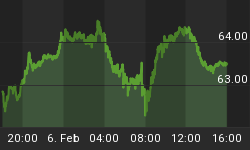1/17/2010 9:42:29 AM
Characteristics of an Effective Trading System
Traders realize that the process of trading can be stressful and that there are human emotions such as greed, fear or hope that influence their decisions, leading them to commit mistakes. This is where a mechanical trading system can be so important. The very nature of system trading mandates taking every single trade generated by the system, which greatly helps to keep these dangerous emotions at bay. Mechanical systems do not have emotions, which can be a big advantage to the trader.
That being said, let's review some of most basic axioms involved in effective trading system design. Basically there are two types of trading systems: trend-following and countertrend systems. These two strategies form the foundation on which most all trading systems are built, and the markets provide the medium.
The first thing to keep in mind before beginning the trading system design is to make sure it is compatible with your trading style so that you work smart, not hard. This will give you your trading edge.
The most fundamental principle in designing a trading system is that every rule or reason for entering and exiting a trade must be quantatively defined by mathematics. The next principle deals with the complexity issue. It is paramount to apply the KISS approach KISS means "keep it stupid simple," or "keep it simple, stupid," whichever fits best. A natural tendency is to make the trading system too complex.
The best way to go about creating a useful trading system is to put on blinders to the opinions, suggestions, and wisdom of all those who would tell you what needs to be different about your system design to make them happier. You want a trading system that thrives in the market conditions it is designed for, and survives in all others. If it holds up to your expectations over a period of time, in all types of markets, then you can begin trading it with real money.
The trading system design should address the basic rules of trading:
• Entry rules when you get into a position
• Exit rules when you get out of one
• Money Management rules: How much do you put into a trade?
• Backtesting: Does the system work historically?
Armed with this information, you will be well on your way to designing a robust, and profitable, trading system.
A trading system should be designed to make you a better trader and to overcome your personal weaknesses. A successful system is one that holds its own with minor losses offset by minor gains, and puts the occasional great trades in the bank. If you expect a system to be right all the time, or profitable every day, then you will never find it, and probably abandon lots of ideas that had good merit.
If you have you have any questions please do not hesitate to e-mail me at: jeff@stockbarometer.com.
Happy Trading!















